japan islands
Japan Islands: Underrated Places to Check Out!
Thuy Fang
Posted on August 23, 2024
Share:
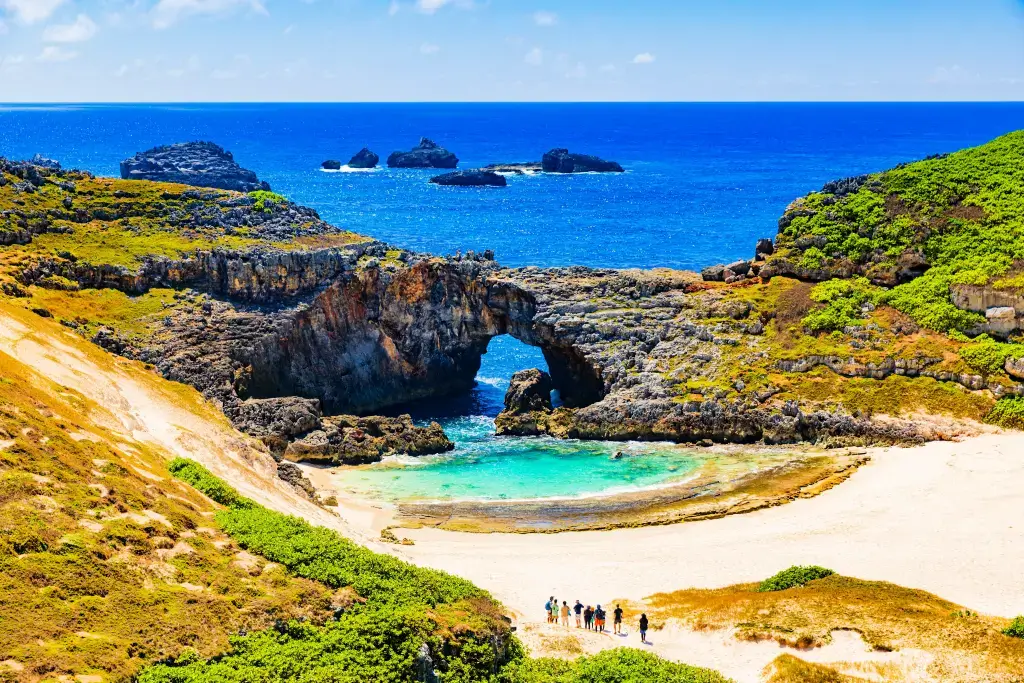
Japan comprises over 14,000 islands and has become East Asia’s most significant island nation. Its geography, stretching from north to south, provides various climates and ecosystems. Each isle has unique natural and cultural characteristics, making it a popular tourist destination. However, many unique islands in Japan still need to be discovered. Let’s explore them!
Amami Islands (Kagoshima)
The Amami Islands are a group of beautiful islands in Japan located southwest of Kyushu. They are part of the larger Ryukyu Islands and governed by Kagoshima Prefecture. Clear, turquoise waters and vibrant coral reefs surround them. Also, they are famous for their subtropical climate. These natural features provide endless opportunities for fun outdoor activities, such as scuba diving, snorkeling, and surfing.
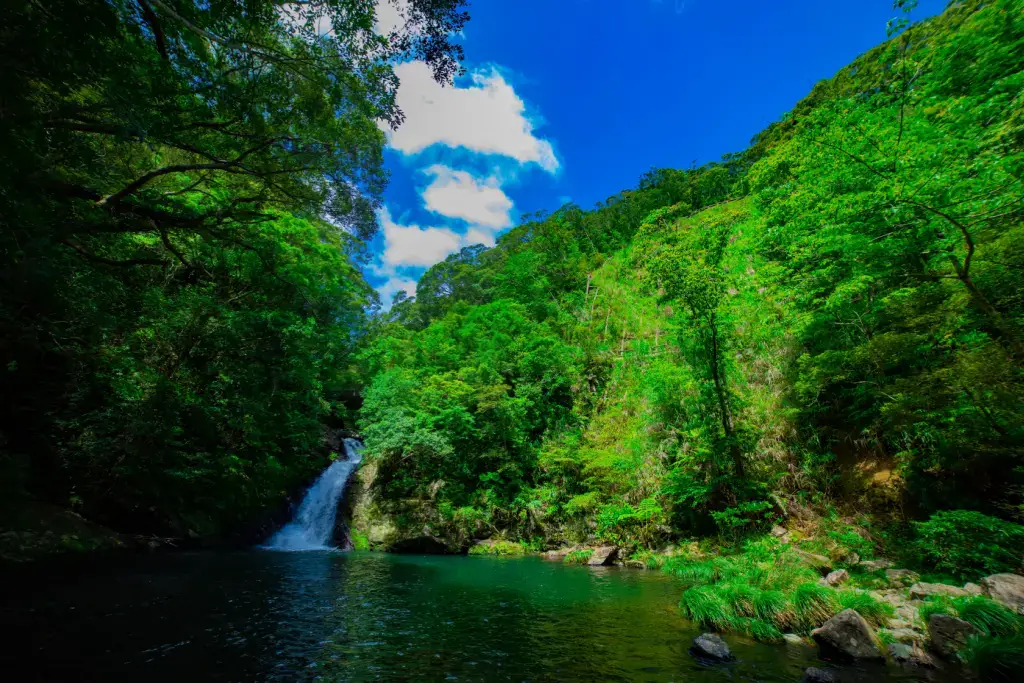
Amami Oshima is the biggest of the Amami Islands. It’s included in the Amamigunto National Park and is beloved for its colorful coral reefs and unique animals. In July 2021, Amami-Oshima became a UNESCO World Natural Heritage site because of its rich wildlife. This place is also well-known for Oshima tsumugi (silk), a traditional fabric made for over 1,300 years. This silk, dyed with special mud techniques, is highly valued for its exceptional quality and beauty.
Another highlight of the Amami Islands is Tokunoshima, the second-largest one in the chain. Tokunoshima is known for togyu, where bulls compete against each other in a test of strength. This practice has been a significant part of the culture here for centuries. Tokunoshima’s coastline has stunning beaches, perfect for surfing and diving. Every June, it holds an annual triathlon that draws many participants.
Sado Island (Niigata Prefecture)
Located off the coast of Niigata Prefecture, Sado is one of Japan’s largest and most captivating islands. Sado has a long history as a place where political figures and intellectuals were sent when they were out of favor. Those exiled to this place brought culture, art, and religion to this area, shaping its unique traditions and making it an exciting spot to visit.
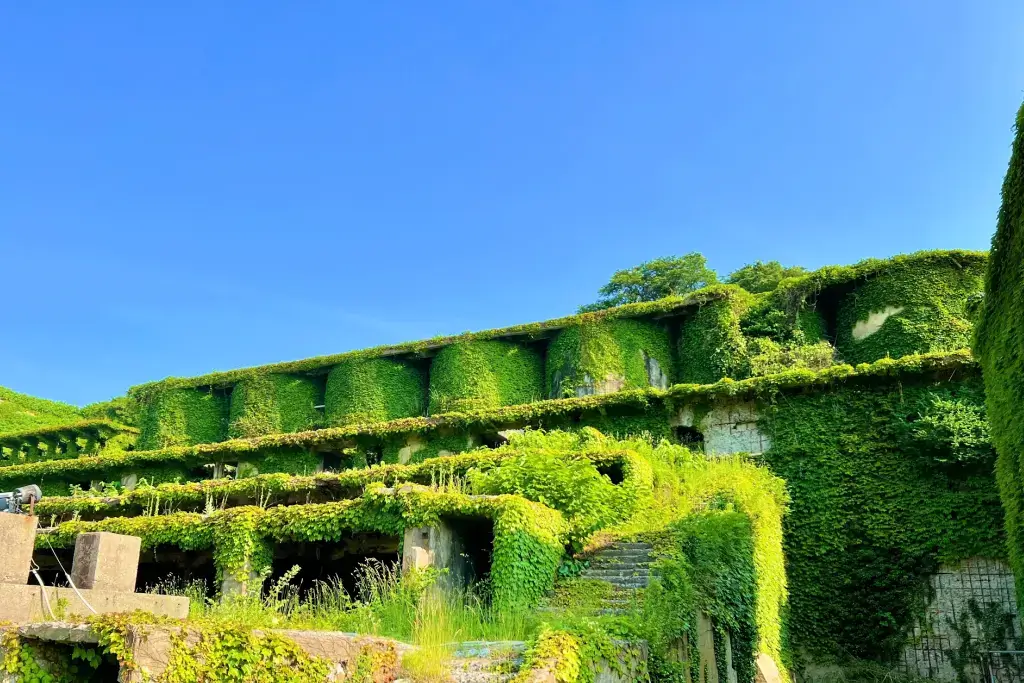
Exploring Sado is an adventure filled with activities like cycling, hiking, and even panning for gold at the Sado Gold Mine. You can also take a trip in a tarai-bune, a traditional wooden tub boat, for a lovely view of the rocky coastline. If you’re into history, visiting temples like Myoshoji and Komponji offers a peek into the spiritual life of the exiles who once lived here. Sado also has lovely beaches like Futatsugame, which are perfect for swimming and relaxing. It’s also home to the rare Japanese crested ibis, which has been returned to Sado thanks to eco-friendly farming.
One of the most exciting events on Sado is the annual Earth Celebration, a lively music festival hosted by the world-renowned Kodo Taiko group. The festival celebrates drumming, nature, and global unity, attracting musicians and visitors worldwide.
Rebun Island (Hokkaido)
Rebun is about 50 kilometers (31 miles) from Hokkaido. It’s part of the Rishiri-Rebun-Sarobetsu National Park, surrounded by beautiful nature. It’s celebrated for its gorgeous mountain flowers, which are in full bloom from June to August.
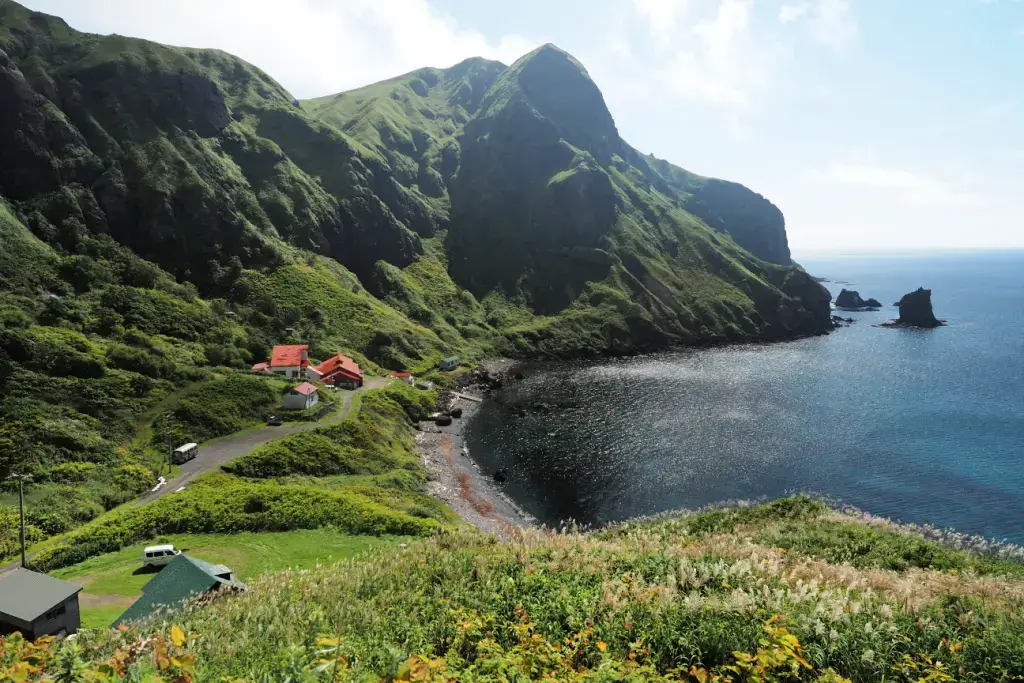
Rebun’s hiking trails are a big draw, with the popular eight-hour hiking course stretching from one end to the other. However, if you prefer shorter hikes, you can experience the Peach Rock Lookout hike, which only takes about 40 minutes. In addition, Rebun also has a small mountain, Rebun-dake, which is 490 meters high and offers breathtaking views.
Its history is fascinating, too! The Ainu people inhabited Rebun before the Japanese settled in the 1870s. Fossils of extinct sea creatures have been found here. Plus, it was the site of the last sighting of the Japanese sea lion in 1974.
Are you looking for great snacks while exploring Japan’s islands? Check out Sakuraco! Every month, Sakuraco delivers delicious Japanese snacks, teas, and sweets from Japan so you may enjoy them at home.
Awaji Island (Hyogo Prefecture)
Awaji is the largest isle in the Seto Inland Sea between Honshu and Shikoku islands. It’s easy to get to Awaji from major cities like Osaka and Kobe, thanks to the impressive Akashi Kaikyo Bridge, which has the longest span of any suspension bridge in the world. Its name means “the road to Awa,” reflecting its role as a historic pathway between islands. Furthermore, according to Japanese mythology, Awaji was one of the first islands created by the gods Izanagi and Izanami.
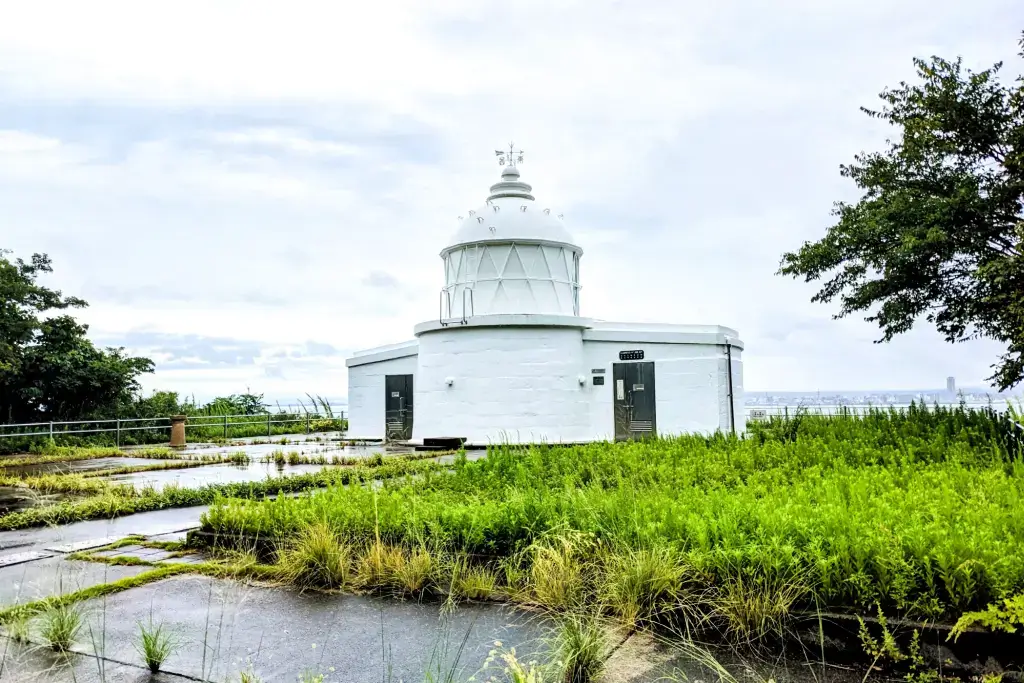
One of the best things to see here is the Naruto Whirlpools in the Naruto Strait. You can watch these fantastic whirlpools from the Onaruto Bridge or get a closer look on a boat tour. Another highlight is Goshikihama Beach, famous for its colorful pebbles and beautiful sunsets. You can visit the Awaji Ningyo Joruri in Minamiawaji to taste local culture. With over 500 years of history, this traditional puppet theater performs fascinating shows and is recognized as a national treasure.
Nokonoshima Island (Fukuoka Prefecture)
Nokonoshima is an enchanting getaway in Hakata Bay, just a quick 10-minute boat trip from Fukuoka City. It’s surrounded by majestic ocean views and is full of natural beauty and fun activities. Visitors can experience Nokonoshima Camp Grounds for summer camping, barbecues, and water sports.
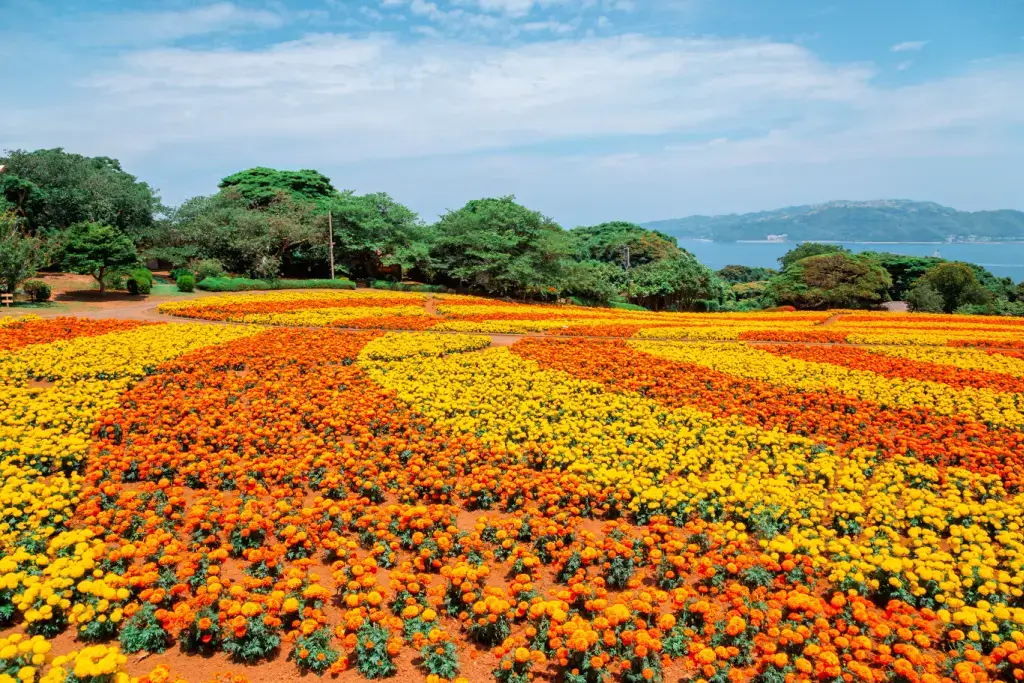
One of the island’s top spots is Nokonoshima Island Park. This park is known for its attractive flower displays that change with the seasons. In spring, you can see cherry blossoms and bright yellow rape blossoms. Summer brings fields of sunflowers, while autumn showcases a vibrant cosmos. In winter, the park turns into a snowy wonderland with blooming oxalis flowers. It’s a great place to take a leisurely walk, have a picnic, or even do some pottery at its small studio.
If you’re hungry, don’t miss the chance to try the local food at Noko no Ichi market, such as onigiri (rice balls), fresh fish, and burgers. The market also sells delicious local fruits and vegetables from the farms. Moreover, Nokonoshima is also rich in history and culture. There are old tombs from ancient times and relics from the Edo period (1603 – 1868).
Why should I check out these underrated islands in Japan?
Exploring these underrated destinations is a must since each one offers unique experiences. The Amami collection provides delightful outdoor adventures and lovely local traditions. Besides, you can enjoy the stunning natural beauty of Rebun, the rich history of Sado, the lively cultural activities in Awaji, and the charming landscapes of Nokonoshima. These islands in Japan are ideal for anyone looking to discover hidden gems and enjoy a different side of Japan. So, which one are you most excited to visit? Share your thoughts in the comment below!
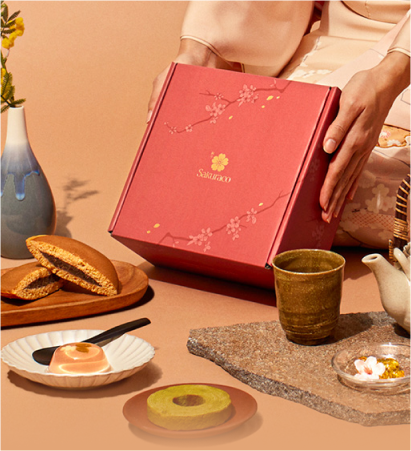
Discover authentic flavors with Sakuraco
Get Sakuraco 

Discover authentic flavors with Sakuraco
Get Sakuraco 
Related Articles
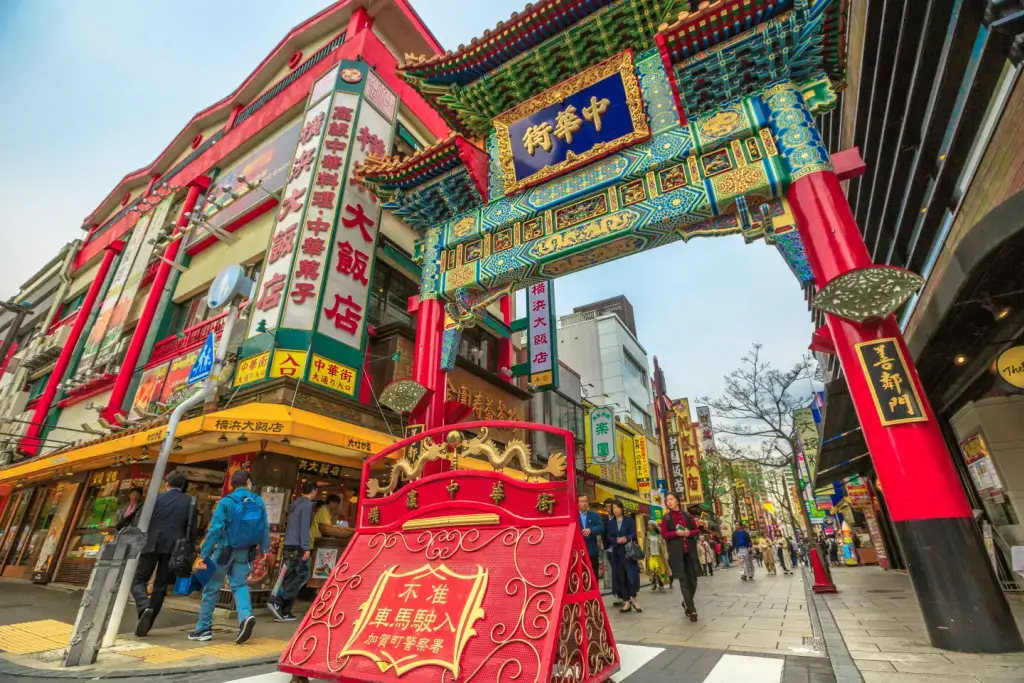
Yokohama Chinatown: Everything You Need to Know!
Yokohama, a city just south of Tokyo, is home to the largest of Japan’s three Chinatowns, called “chukagai” in Japanese. Established in the late 19th century, Yokohama Chinatown is a historic area home to hundreds of businesses.
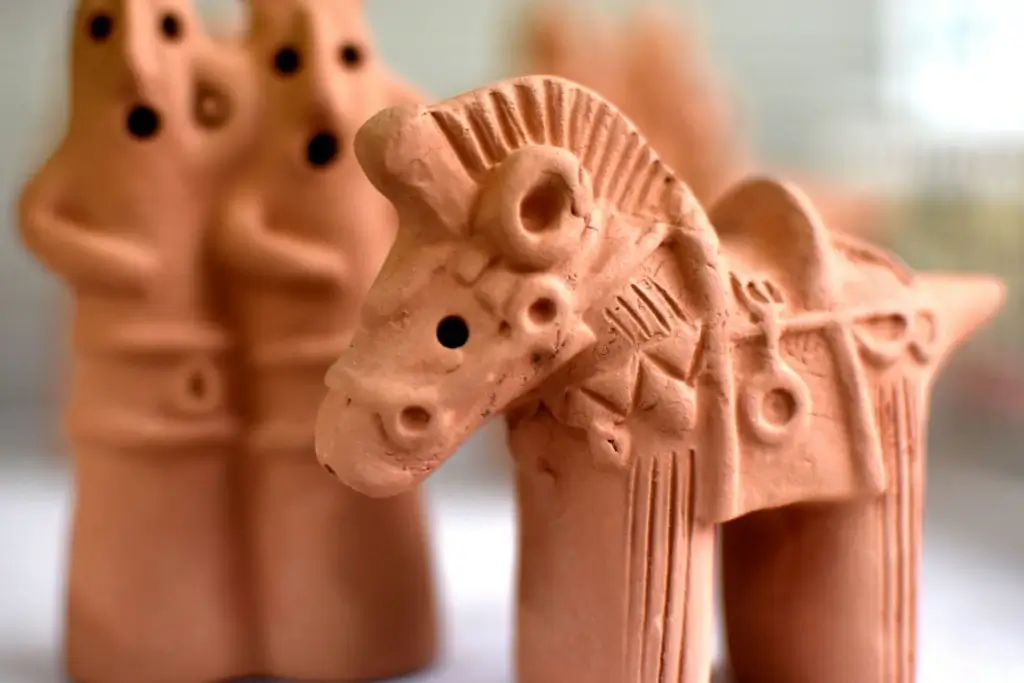
Yamato Period: A Look at Japan’s Early Path to Unity
The Yamato Period laid the foundation for modern Japan. Powerful clans emerged to shape the islands’ future and form the country’s first early states.
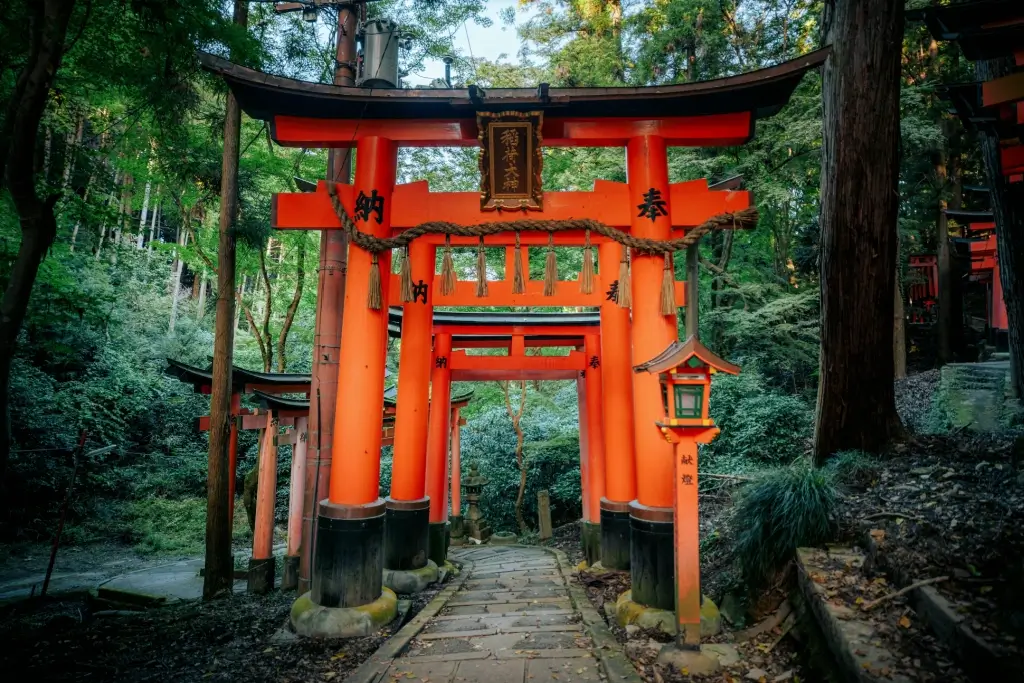
Kyoto Shrines: Five Best Ones to Visit!
Kyoto shrines preserve history within their walls, and their network carries the old days into modern Japan. Visiting them can be a memorable way to learn about Japan’s past and understand how spiritual traditions coexist with modern life.
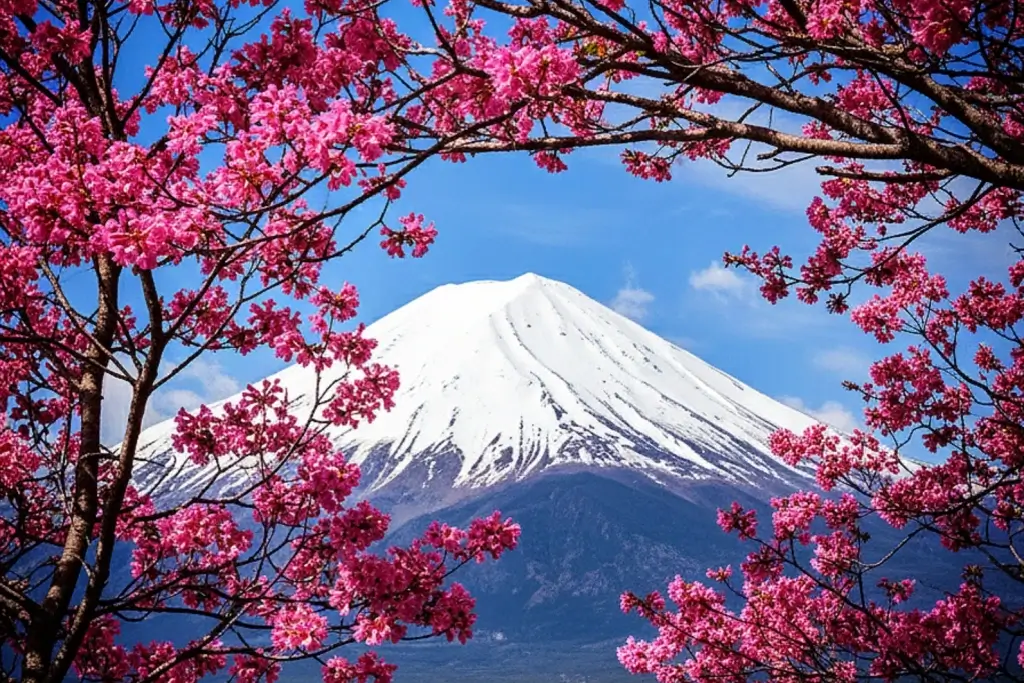
Cherry Blossom Flower Variety Across in Japan: The Ultimate Guide!
Many people know the soft pink cherry blossoms. However, sakura in Japan includes a wide variety.



